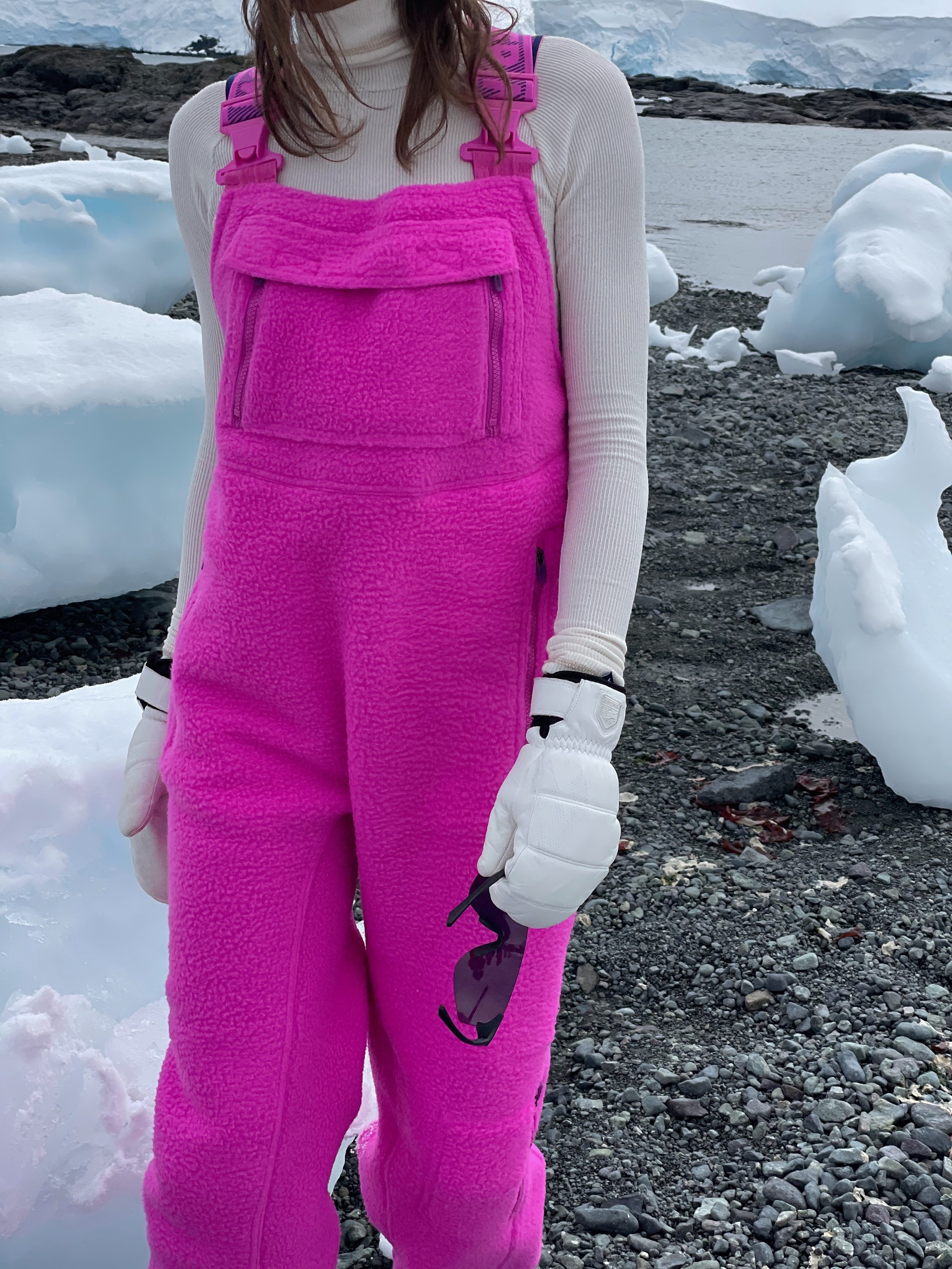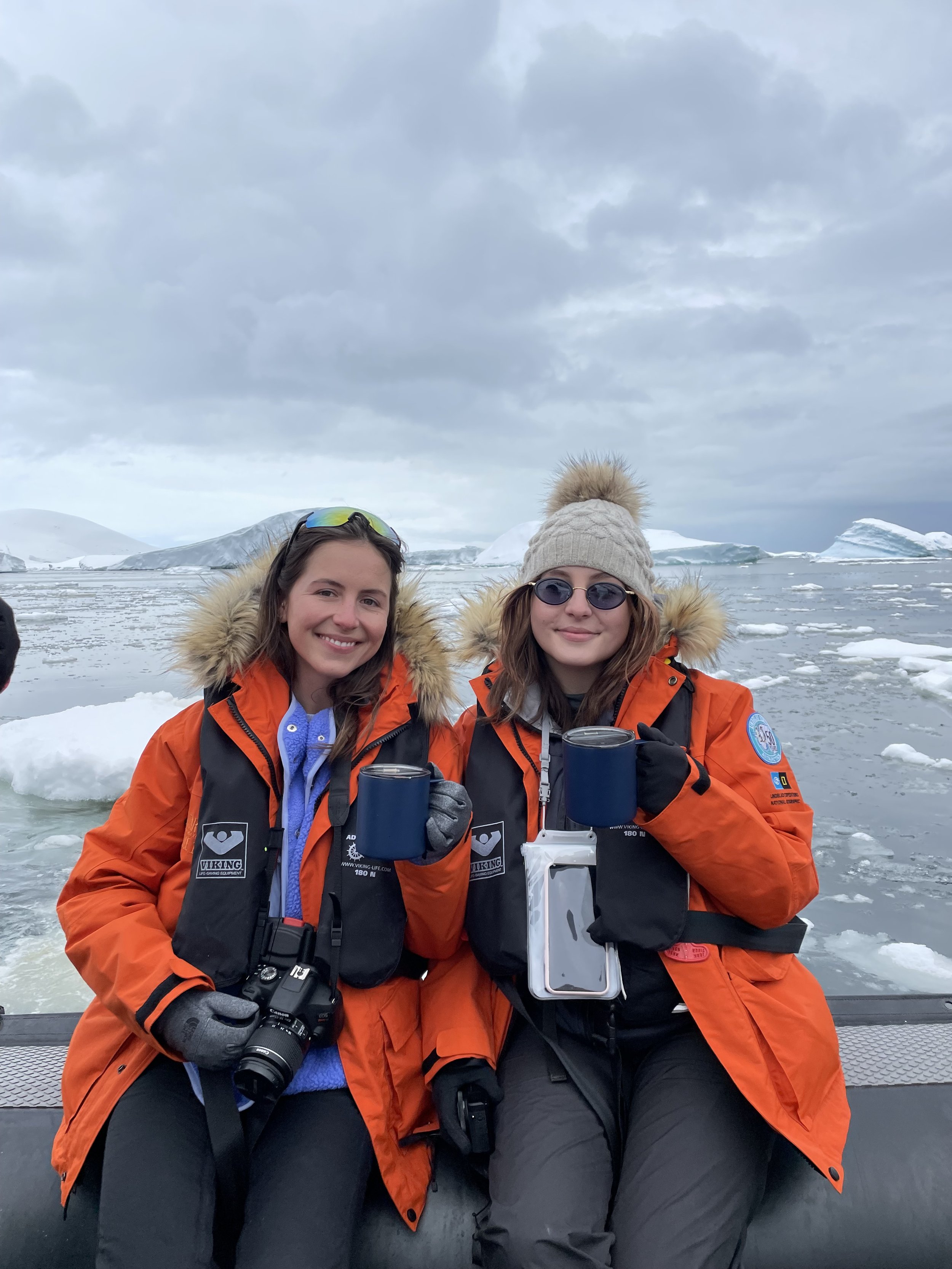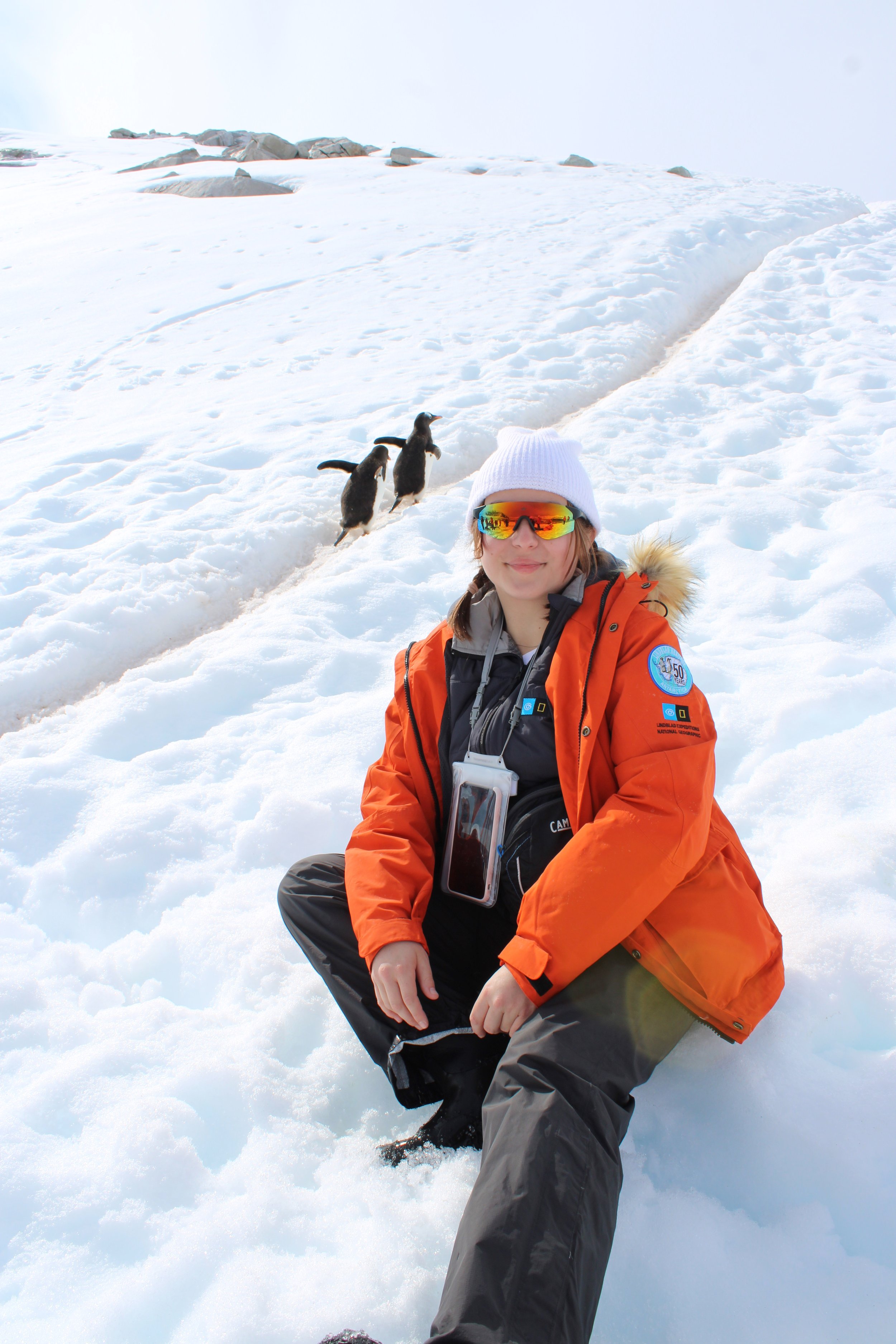The Essential Packing List for an Antarctic Expedition
What the heck do you pack for a trip to Antarctica?? Good question! I’ve got answers. Creating packing lists are essential for my pre-departure sanity before any trip. So of course, I had to do some research and make sure we were all set for our expedition. The last thing you want to be in Antarctica is unprepared. I always say better to be overprepared than underprepared, BUT you also have to consider weight limits. Here’s what I decided are the essentials for this journey.
For the excursions
Parka - our parka was provided for us by National Geographic. This parka was GREAT. If you aren’t provided with a parka, anything that is warm and waterproof will do. Remember to leave some room in your suitcase so you don’t have to stuff it in your brothers bag when he isn’t looking…
Warm/waterproof jacket - I actually didn’t bring an extra jacket but I would recommend if you have room. I wore my parka for all the activities off the boat and once on the boat I wore my insulation layer puffer if I needed to go outside. Instead I chose to fill my space with various vests. Smart or silly? You tell me…
Boots - you will absolutely need some good waterproof and warm boots for activities. We rented ours from the ship because we figured we would not have use for them afterwards. Snow boots don’t work. You will likely experience wet landings during activities and any water that gets inside your boots will freeze. I brought my snow boots but did not wear them once. I would say they were a waste of space.
Waterproof pants - we also rented our pants from the boat. These were literally just waterproof shells so make sure to bring some nice merino wool layers to wear underneath. I also brought my regular ski pants and they worked really well for any activity that didn’t have a wet landing since they are water resistant, not water proof. I think any pair of good gore-tex pants will work great if you don’t want to rent.
Long underwear/base layer bottoms - these are essential!! Again, the waterproof pants are very thin so keeping your legs warm is a must. I brought 4 pairs of long underwear bottoms. I probably didn’t need this many but I would bring at least 2 or 3 because they are the closest layer to your skin and you’ll want them to be decently clean.
Long underwear/base layer top - just the same as the bottoms. Bring multiple and make sure they are a good wool material to absorb any sweat or water that may occur.
Mid-layer - a good fleece or extra long sleeve is definitely a good idea to have. I would say you can get away with just one of these. Make sure your base layer fits underneath. You may not always need this layer but better to bring it.
Insulation layer - a good down jacket works well for this layer. I would recommend something small and easily compact because you will be wearing your parka over it. The parkas provided by National Geographic also have this layer built into them. It is removable and extremely warm.
Vests - okay this might not be absolutely necessary but I did not regret bringing my warm vests. By keeping your torso warm you are reducing the risk of your extremities getting cold. I wore one every day and my hands and toes, which usually get numb within a few minutes in the cold, were nice and toasty.
Socks - these are so so so so important. A good pair of socks makes all the difference. Don’t skip out on these. I also recommend bringing sock liners. I would suggest a pair of wool liners as my silk ones were not great for the cold.
Beanies/hats - beanies are another essential for this trip. Your head will get cold. There is wind and if you don’t have anything to protect it you might be miserable.
Gloves/glove liners - I purchased these North Face glove liners (linked below) for my whole family right before my trip and we used them every single day. I actually only put my waterproof mittens on ONCE during the entire trip. They have a grip on the finger-pad so you can easily access your phone or camera for photos and are very warm and durable. It may also be beneficial to bring some light, warm gloves to wear for time spent on the outside of the boat eating, drinking, or reading.
Waterproof gloves/mittens - On top of the liners you will want to be prepared with some good waterproof gloves or mittens. Again, I actually only wore mine once but I had them with me for every activity just in case.
Neck gaiter/scarf - not only were these way easier than taking your mask on and off while leaving the boat, they also protect from wind and keep you nice and warm.
Foot and hand warmers - we didn’t end up using ours but I would bring them just in case. Weather can be unpredictable.
For onboard
Since this is an expedition, casual wear is completely acceptable. I wore comfortable athleisure most days and I would recommend bringing a pair or two of jeans and a sweater if you want to “dress up” a bit. Comfortable and warm is key.
Pants to wear on board
Shirts to wear on board
1-2 dressier outfits for first and last night on ship - (totally optional) formal clothes are really not necessary
Workout clothes
Sneakers/running shoes
Shoes - bring something sturdy and easy to slip on and off. Hiking boots or snow boots are not necessary but it may be slippery outside the ship.
Slippers/slides - not essential but nice for trips to the jacuzzi and spa
Bathing suit
Pajamas
For photography
Camera
Battery/charger
Extra lenses
Extra memory cards
Laptop, iPad or anything to back up your photos on to
Waterproof camera bag/covering
For everything else
Waterproof day pack/backpack - just big enough to cary a water bottle, some sunglasses, and maybe an extra lens for your camera
Phone charger
Reusable water bottles - ours were provided for us by the ship
Sunglasses - the sun is bright in Antartica. Bring a good pair of shades to protect from rays and wind.
Waterproof phone case - we ordered these from amazon. They are not absolutely necessary but good to have incase of rain or snow.
Binoculars
Sunscreen - the sun is strong and reflects off the sea and snow. You will burn if you don’t apply your spf.
Sleep masks - 24 hours of daylight…
Sea sickness medication
Toiletries
Chapstick
Moisturizer
Passport !!
Any COVID documents that might be required




